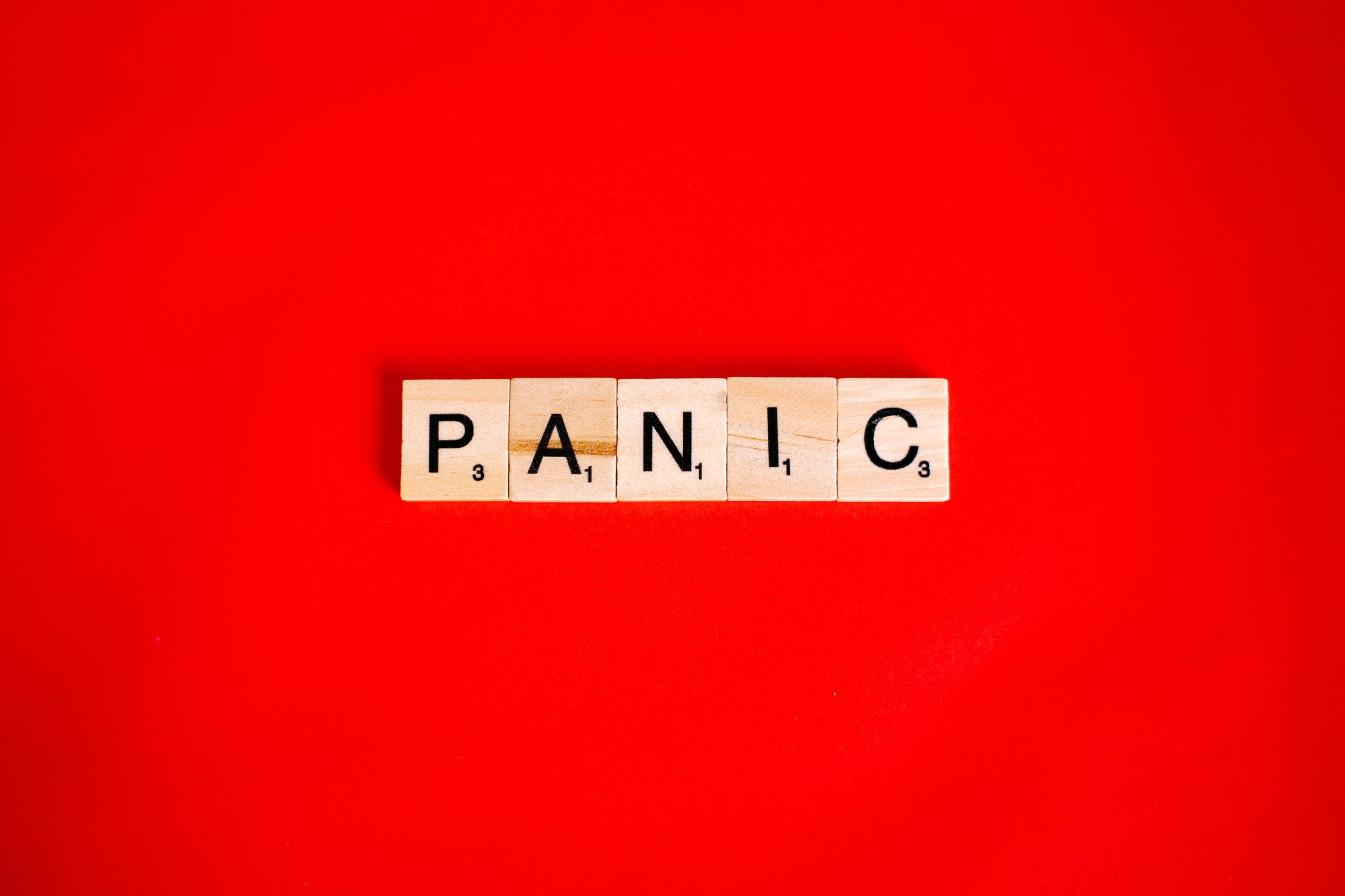Thoughts from a therapist…
A Blog
If you find yourself struggling with various family dynamics, low motivation, depression, anxiety, low self esteem reach out today and find out how therapy can help.
EMDR and Depression: Understanding the Role of Attachment Trauma
When we think of depression, often we picture someone who's feeling down and out, maybe a bit 'off.' But what if I told you that the roots of depression often run much deeper and can be traced back to our earliest bonding experiences? Yes, we're talking about those infant days, long before you had to worry about paying bills or what to post next on Instagram. This is where the concept of attachment trauma comes into play, and believe it or not, it can significantly contribute to depression in adulthood. Let's unravel this puzzle and see how Eye Movement Desensitization and Reprocessing (EMDR), particularly the attachment-focused variant, can help us tackle these deep-seated issues.
Navigating Anxiety with EMDR: Healing from Attachment Trauma
Let's face it, anxiety can be like that uninvited guest who crashes your party, eats all your snacks, and just won't leave. But what if this party crasher has been lingering since your childhood days? Often, the roots of our adult anxiety stretch back to our early experiences, specifically to those all-important attachment relationships. Yes, I'm talking about those days when your biggest worry was whether you'd get an extra scoop of ice cream. But hey, let's dive a bit deeper and see how Eye Movement Desensitization and Reprocessing (EMDR) therapy can help send this persistent gatecrasher packing.
Navigating Family Boundaries During the Holidays: A Guide to Less Anxiety and More Joy
The holiday season, often pictured as a time of joy and togetherness, can also bring a whirlwind of stress, particularly when dealing with family dynamics. For many, navigating family interactions while maintaining personal well-being can be a challenge, leading to heightened anxiety. This guide will explore practical strategies for setting boundaries with family during the holidays, aiming to reduce anxiety and increase enjoyment.
Let's Talk About Anxiety: From Caveman Days to Your Family's History
Hey there! So, we all deal with anxiety, right? Sometimes it feels like an unwanted guest that just won't leave. But have you ever wondered where it comes from? Let's dive into this together and understand not just where anxiety comes from, but also how it's passed down through generations. And yes, we're going to talk about therapy options too, including online therapy, because let's face it, we could all use some help sometimes.
Navigating the Storm: Understanding and Managing Postpartum Depression in Later Parenthood
Welcoming a new life into the world is an extraordinary event filled with joy, anticipation, and love. However, for many women, especially those who become mothers later in life, this significant life transition can also bring unexpected mental health challenges, such as postpartum depression (PPD) and perinatal mood disorders. The joyous arrival of a newborn can sometimes be overshadowed by overwhelming emotions, but understanding the signs and knowing when to seek help can make all the difference.
The Best Stress-Reduction Techniques for High-Anxiety Situations
Living with anxiety can feel like being in the eye of an emotional storm. One moment you may feel in control, and the next, a wave of worry washes over you, leaving you feeling helpless and overwhelmed. As an online therapy provider specializing in supporting women with anxiety, we understand how these high-anxiety situations can be not just challenging but utterly exhausting.
Navigating Seasonal Affective Disorder: How Online Therapy Can Help
As the leaves change color and fall from the trees, you might find that your mood begins to drop as well. The winter season often brings more than just holiday cheer and snowflakes; for many people, it's a time of increased sadness, lethargy, and even depression. Seasonal Affective Disorder (SAD), a type of depression that occurs at specific times of the year, can be particularly challenging. In this blog post, we'll explore what Seasonal Affective Disorder is, how it manifests, and the ways in which online therapy can offer a lifeline during those long winter months.
Anxiety vs. Stress: Knowing the Difference and When to Seek Help
Feeling overwhelmed by the juggling act of life is something we can all relate to. While stress and anxiety often go hand-in-hand, they are not one and the same. The distinctions may seem subtle, but understanding the difference can be transformative. In a world that often seems designed to trigger these emotional responses, it's crucial to discern between stress and anxiety to navigate the best path for your well-being.
The Connection Between Women’s Hormones and Mental Health: An In-Depth Look
Navigating the landscape of mental health is a complex task for anyone, but women face an added layer of complexity: hormones. From the onset of menstruation to the transitions of pregnancy and menopause, women's lives are often significantly impacted by hormonal fluctuations. These hormonal changes can, in turn, affect mental health, manifesting in conditions like depression and anxiety. Understanding this connection is crucial for both women and healthcare providers aiming for effective diagnosis and treatment.
5 Signs Your Teen May Need Counseling: An Empathetic Guide for Concerned Parents
With the stigma around mental health slowly fading, it's time for parents to take a proactive stance. But how do you know when to start considering therapy for your teen? Here are five signs to watch out for.
Navigating the Maze of Anticipatory Anxiety: You're Not Alone
Anticipatory anxiety refers to the dread and fear experienced before an expected event. It's the tension you feel days, weeks, or even months before an event you consider stressful. This kind of anxiety can be a part of other anxiety disorders like generalized anxiety disorder (GAD), social anxiety disorder, and specific phobias. However, it's an experience that almost anyone can relate to, even without a formal diagnosis.
A Journey Through Complexity: When Motherhood Awakens Dormant Childhood Trauma
Transitioning to motherhood is a significant milestone that brings joy, love, and a new sense of purpose. However, it also comes with its own set of challenges that can put emotional and psychological strains on new mothers. These challenges are magnified manifold for women who have experienced childhood trauma. Suddenly, responsibilities like feeding, comforting, and disciplining your child could act as triggers, evoking memories and emotions you thought were long-buried.
Finding Your Balance: How Online Therapy Can Support Busy Sports Moms
Whether you're struggling with life transitions, feeling disconnected from your partner, or battling feelings of inadequacy as a mom or wife, high-quality online therapy could be the lifeline you need. At Brighter Days Teletherapy, our highly skilled therapists with lived experience are here to guide you through the unique challenges you face. Let's dive into how therapy for moms can help you regain a sense of self and transform your life for the better.
Navigating the Emotional Landscape: How Online Therapy Can Help Your Struggling Teen
Welcome, Concerned Parents
Firstly, take a deep breath—you're not alone. The path of parenting is fraught with worry, especially when you see your teen struggling. Whether it's mood swings, withdrawal, or behavior you can't quite put your finger on, something tells you they need help. This is a safe space for you to explore how online therapy can support not just your teenager but your whole family.
The Intricate Link Between Social Media and Anxiety: A Therapist's Insightful Guide
Welcome to another blog post, dear readers. As a licensed therapist, I've seen a growing trend that we can't ignore—the rise of social media-induced anxiety. With over 3.6 billion people using social media worldwide, understanding its impact on mental health has never been more crucial. Today, we will explore the relationship between social media and anxiety and delve into actionable tips to safeguard your mental well-being.
5 Proven Tips for Managing a Panic Attack: A Therapist's Guide
Before diving into the coping techniques, it's helpful to understand what a panic attack is. A panic attack is a sudden onset of intense fear or discomfort that reaches a peak within minutes. Symptoms can include heart palpitations, sweating, trembling, a sensation of shortness of breath, and a fear of impending doom.
While it may not be possible to prevent every panic attack, these tips can help you manage and lessen the severity of the symptoms. As always, if panic attacks become a frequent part of your life, it may be helpful to consult a healthcare provider for a tailored treatment plan.
Why Early Attachment Trauma Often Leads to Low Self-Esteem in Adulthood
Are you constantly grappling with feelings of unworthiness or insecurity? You're not alone. Many people who experience low self-esteem in adulthood may trace their struggles back to early attachment trauma. In this blog post, we'll explore the direct link between attachment issues and self-esteem, providing you with insights into why some adults face this emotional hurdle.
Recognizing and Addressing Workplace Burnout: How Therapy Can Be a Lifeline
Workplace burnout has become increasingly common in today's fast-paced world. Defined by the World Health Organization as a "syndrome conceptualized as resulting from chronic workplace stress that has not been successfully managed," burnout can have severe repercussions on your physical and mental health. As a licensed therapist, I've observed firsthand the rise in clients struggling with this condition. In this article, we will explore the signs, symptoms, and statistics related to workplace burnout and discuss how therapy can offer valuable coping strategies.
The Untapped Benefits of Exploring an Autism Diagnosis for Women Struggling with Anxiety and Depression
Many women with undiagnosed autism report a history of anxiety and depression. These conditions can often be interrelated, and a late diagnosis of autism can shed light on years, if not decades, of mental health struggles. By uncovering this link, a new path for tailored treatments and self-understanding emerges.
Mental Health Challenges of First-Generation Americans: A Therapist's Insight
The experience of first-generation Americans, individuals who are the first in their family to be born in the United States, is marked by a unique blend of opportunities, expectations, and challenges. These challenges often extend into the realm of mental health, creating specific needs that must be understood and addressed. As a licensed therapists with lived experience as first generation American, I would like to shed light on some of the mental health challenges first-generation Americans may encounter.





















